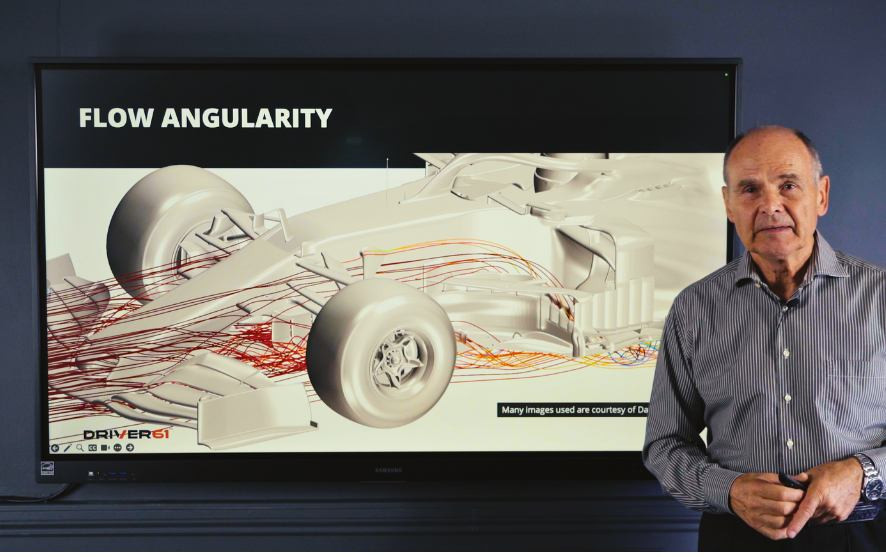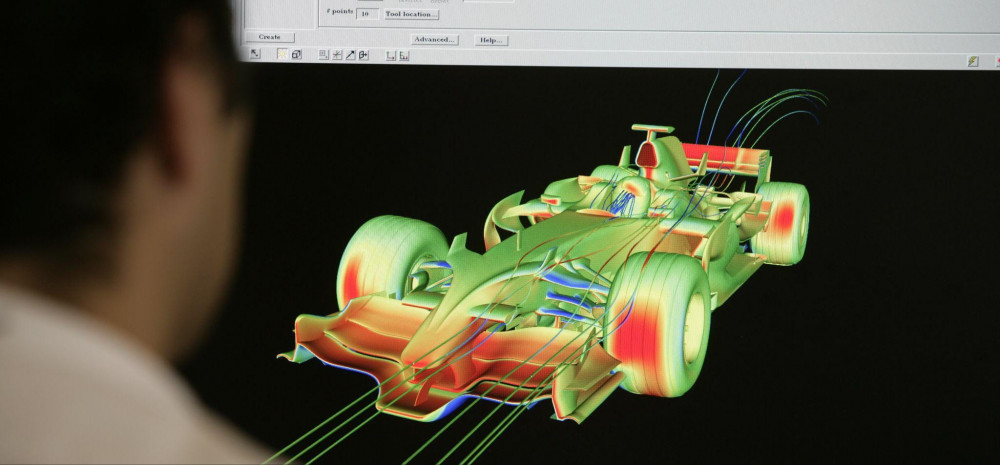Beyond the spectacle and adrenaline of motorsport lies a world of intricate data, complex algorithms and a driving force that's quietly revolutionising the sport; AI and machine learning. This isn't just incrementally improving performance, it's transforming how cars are designed, races are strategised and fans experience the sport.

Recently, I attended a presentation featuring key industry figures including Rob Smedley (CEO of Smedley Group and former Ferrari and Williams F1 engineer), alongside representatives from Amazon Web Services and the Abu Dhabi Autonomous Racing League. Their insights reinforced just how dramatically AI is transforming motorsport, and I've incorporated their perspectives throughout this article.
The Cool Things AI and Machine Learning are doing in Motorsport Already
AI is already here and here are some applications which are revolutionising the pit lane right now:
Optimising the Machine:
AI algorithms are diving deep into data from car sensors, running countless simulations, and analysing track conditions to perfect everything about the car's design. We're talking about tweaking aerodynamics for less drag, increasing downforce, and ultimately shaving precious seconds off lap times. The complexity of modern F1 cars makes AI assistance essential. As Rob Smedley explained:
"There's something like 3,000 different components, or different parameters that you can change on the car... you've got 7.4 billion computatorial effects of how you can set your car up."
This vast number of variables demonstrates why AI has become indispensable in optimizing vehicle performance.

Race Strategy Mastery:
Teams are using AI to analyse everything from weather patterns to tyre degradation and fuel consumption. It's like having a super-powered strategist that can process thousands of scenarios in seconds. During the presentation, AWS representatives described how engineers are now completely dependent on this real-time data analysis:
"At the start of the race people were on the balcony, but within minutes they were coming back into the room to watch the big screens because they were obsessed with the data points that were coming from the track"
All these data points of course being crunched by AI in real time to give race engineers the best idea of how to catch and then of course overtake rivals.
Driver Performance Enhancement:
Think of AI as a virtual coach that never gets tired. It's constantly analysing driver performance data, spotting patterns in braking points, identifying opportunities in cornering techniques, and helping drivers perfect their racecraft. When a driver is struggling with consistent braking points, AI can provide specific feedback that helps them find those crucial extra tenths of a second. If this is something that you are interested in, I recently produced a whole video on the subject which you can see below and check out Trophi.ai for more too.
Safety Innovations:
AI is playing a huge role in keeping everyone safe. These systems are monitoring real-time data from both cars and track conditions, picking up on potential hazards before they become dangerous. Whether it's spotting dangerous driving behavior, predicting possible collisions, or alerting officials to track hazards like debris or oil spills, AI has helped significantly reduce on-track incidents.
Maintenance and Reliability:
AI isn't just about speed - it's about finishing races too. Modern systems can predict component failures before they happen, allowing teams to replace parts before they fail. This predictive maintenance isn't just saving races; it's making the sport safer and more reliable.
Future Applications of AI and Machine Learning in Motorsport
AI is going to evolve at an extraordinary pace over the coming years - here's what we know is coming down the pipeline on the engineering side but also come great innovations to make the viewing of the sport more immersive:
Autonomous Racing:
The Abu Dhabi Autonomous Racing League (A2RL) is showing us the future. These driverless cars are identical except for one thing - the AI code that drives them. The A2RL representative shared their remarkable progress:
"When we start the first time and we put Human-less machine on Las Marina, we got three to four minutes difference between the human and the machines... and the machine was very painful"..."in the last race we were below seconds' difference."
This rapid improvement demonstrates how quickly autonomous racing technology is evolving.

Image: A2RL
Digital Twins:
Imagine being able to test thousands of car configurations without building a single physical part. That's what digital twins are enabling. Teams can create virtual replicas of their cars, test different setups, and optimize performance in a virtual environment before spending money on physical prototypes.
Enhanced Broadcasting:
AI will transform how fans experience races. We're talking about real-time 3D models of cars and tracks, automatically generated highlights, and immersive views that let fans experience the race from any angle they choose.
Fan Engagement:
AI is personalising the fan experience by analysing social media and digital interactions. During the presentation, AWS highlighted how viewing habits are evolving. Younger viewers would like to play while they watch, while also chatting to their friends. This is all done on the cloud, using AI and Genai (Generative AI).
This multi-screen, highly interactive approach to watching races represents the future of fan engagement.
To quote Rob Smedley:
"Formula One has one and a half billion fans around the world... it's a very, very complex demographic. It's very, very differentiated and not every part of that fan group wants the same thing."
How Best to Prepare Yourself and Your Career for the Changes AI and Machine Learning Will Bring
If you work in motorsport already or you’re looking to build a career in motorsport, you may be worried about AI replacing humans. We’d encourage you to look at it another way - the Human / AI partnership will be the future, essentially Humans controlling and working alongside AI. To succeed in this field, solid technical skills will still be the basis:
- Keep up to date with all the latest AI tools, make sure they are always at the forefront of your mind when deciding how to tackle a task.
- A solid foundation in mathematics and statistics for understanding machine learning algorithms
- Data analysis and visualisation skills
- Deep understanding of mechanical systems and engineering principles
- Deep knowledge of vehicle dynamics and aerodynamics
Below are a number of career opportunities that working with AI will bring:
Data Scientist:
You'll be analysing large datasets to extract meaningful insights that inform decision-making. This requires strong analytical skills and the ability to translate data into actionable recommendations.
Machine Learning Engineer:
Your focus will be on developing and deploying models that improve car performance and race strategy. You'll need expertise in machine learning algorithms and a solid understanding of motorsport dynamics.
Simulation Engineer:
You'll be creating virtual environments to test car performance under different conditions, requiring a strong understanding of physics and engineering principles.
AI Strategist:
Working alongside race engineers, you'll develop AI-driven race strategies, requiring both technical expertise and a deep understanding of racing tactics.
Senior AI Engineer:
You'll be designing and implementing advanced AI models that drive performance improvements and operational efficiency.
There will be challenges when it comes to working with AI
be prepared for:
- Keeping up with rapidly evolving technology and maintaining complex AI systems
- Dealing with the "black box" problem - making sure AI decisions can be explained and understood
- Managing unpredictable factors like weather, driver behavior, and changing race conditions
- Addressing ethical considerations around data privacy, fairness, and transparency
AI will undoubtedly change the landscape around designing and racing cars. The future is exciting and also largely unknown - embrace it, work alongside it and quite aptly, keep ahead of the pack with its use. It will most likely propel your career to the next level.




